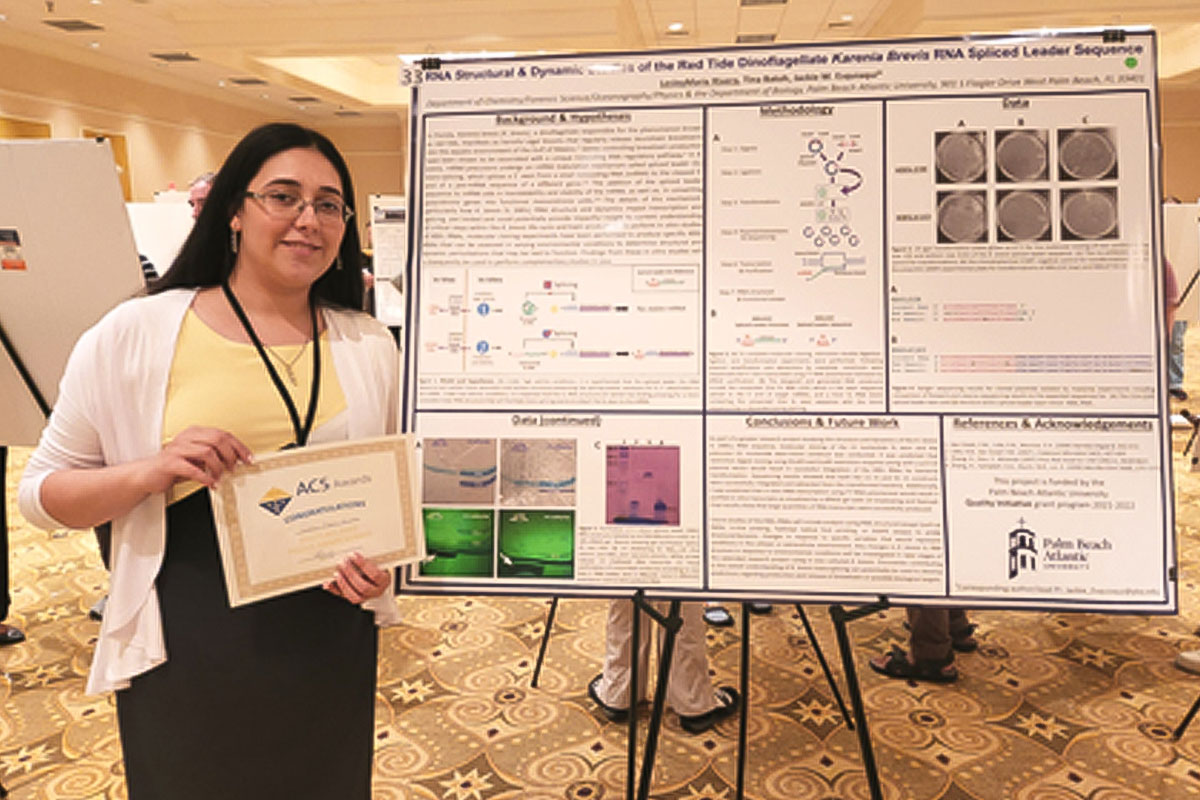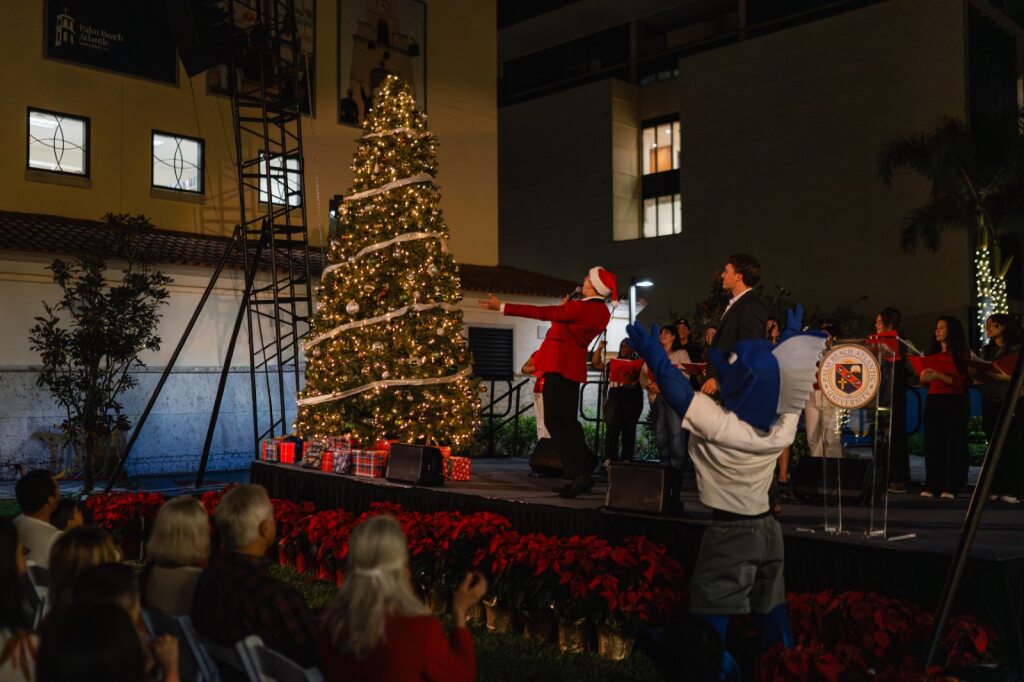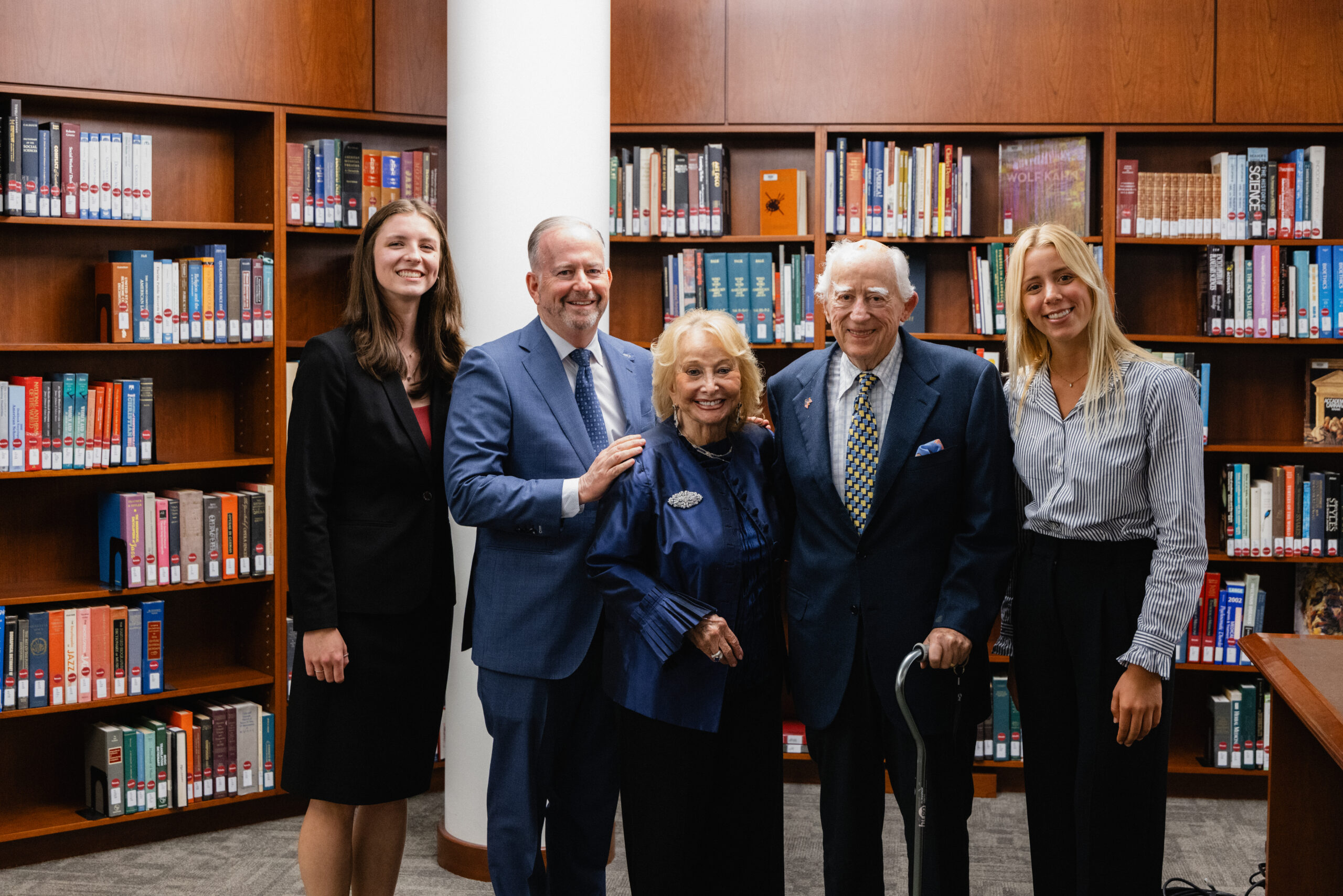Graduate student LesleyMarie Rivera has won an award for her scientific research that may eventually help provide insight into the production of toxins produced by the algae Karenia brevis, which causes red tide in Florida.
Rivera earned the poster presentation award at the Florida Annual Meeting and Exposition (FAME) of the American Chemical Society’s Florida Section for research she performed as an undergraduate at PBA.
Undergraduates, graduates, postdoctoral scholars and expert scientists from research universities across the state attended the meeting at the Innisbrook Resort near Tampa, Florida, in August. Additionally, Rivera’s research abstract was accepted for a poster presentation at The Florida Undergraduate Research Conference in Orlando this February and at PBA’s Interdisciplinary Research Conference in the spring. Rivera is a 2021 alumna and first-year student in PBA’s Master of Science in health science program.
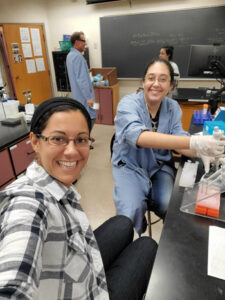 Dr. Jackie Esquiaqui and LesleyMarie Rivera pose for a photo in the lab while working on their research. Working in the research lab of Dr. Jackie Esquiaqui, assistant professor of chemistry, Rivera and student Danielle Garzon are studying the algae Karenia brevis to understand factors that impact release of internally produced toxins to the environment. These toxins may cause respiratory distress and itchy eyes in humans near the coast. Humans can also be exposed to the toxins if they eat contaminated shellfish.
Dr. Jackie Esquiaqui and LesleyMarie Rivera pose for a photo in the lab while working on their research. Working in the research lab of Dr. Jackie Esquiaqui, assistant professor of chemistry, Rivera and student Danielle Garzon are studying the algae Karenia brevis to understand factors that impact release of internally produced toxins to the environment. These toxins may cause respiratory distress and itchy eyes in humans near the coast. Humans can also be exposed to the toxins if they eat contaminated shellfish.
Esquiaqui and Rivera’s research, in collaboration with Assistant Professor of Biology Dr. Tina Batoh, will increase scientific knowledge about the algae’s life cycle. Their research focuses on the structure of genetic material, specifically ribonucleic acid or RNA, in connection to the production of toxins.
Rivera’s first year of research involved making large quantities of RNA, thought to control toxin production in Karenia brevis, that could then be exposed to different conditions. Now Rivera and Garzon will test which environmental conditions change the RNA. Salt level and temperature are among the conditions the researchers will study. Variations in the structure of the RNA resulting from changing these environmental conditions will allow them to determine whether certain conditions could cause Karenia brevis to increase or decrease its toxin production. This could help local environmental managers predict the intensity of red tide blooms.
“It could be used in terms of prediction,” Rivera said. “Environment is a big part of what conditions trigger the toxin production process.”
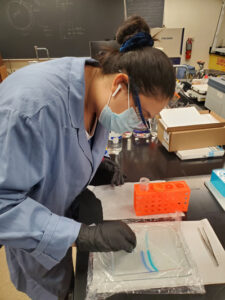 LesleyMarie Rivera works on her scientific research with RNA in the chemistry lab.Esquiaqui said Rivera’s progress is “pretty phenomenal” and a “testament to her work ethic and desire to see the story.” As an undergraduate, Rivera has ambitiously worked at the same rate as a graduate student who devotes 100 percent of his or her time to research, she added.
LesleyMarie Rivera works on her scientific research with RNA in the chemistry lab.Esquiaqui said Rivera’s progress is “pretty phenomenal” and a “testament to her work ethic and desire to see the story.” As an undergraduate, Rivera has ambitiously worked at the same rate as a graduate student who devotes 100 percent of his or her time to research, she added.
About halfway through her undergraduate studies, Rivera took a position as a chemistry lab tech and started research with Esquiaqui. Esquiaqui soon became Rivera’s mentor and spurred Rivera to achieve more than she thought possible.
Of the FAME poster award, Rivera said. “I couldn’t have imagined I would be able to do this even a year ago.” She added, “The opportunity for an undergraduate to get exposure to research and compete is amazing.”
Rivera is applying for highly competitive M.D.-Ph.D. degree programs that would allow her to practice medicine while conducting grant-funded research. Her love of chemistry developed over the course of her life, beginning with an eighth-grade teacher who made science fun. Encouraged by her parents to pursue a career in medicine, Rivera enrolled in anatomy and physiology classes in high school.
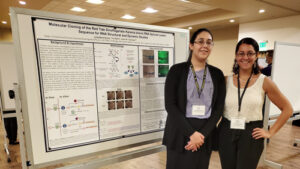 LesleyMarie Rivera and Dr. Jackie Esquiaqui pose for a photo at The Florida Undergraduate Research Conference in Orlando in February. Rivera’s mom, a teacher with multiple certifications, instilled in her the desire to never stop learning, she said.
LesleyMarie Rivera and Dr. Jackie Esquiaqui pose for a photo at The Florida Undergraduate Research Conference in Orlando in February. Rivera’s mom, a teacher with multiple certifications, instilled in her the desire to never stop learning, she said.
“Since I was inspired by so many people on my academic journey, I want to be able to do that for other students,” Rivera said.
Rivera is grateful that PBA requires undergraduate students studying biology or chemistry to take a senior research class with a capstone presentation where peers and professors ask questions and “you have to think on the fly.” The experience helped prepare her for the conferences.
The conference was “a lot more collaborative than I was anticipating,” Rivera said. Seeing the other presenters and the differences in their styles “was a confidence booster.”
Photo 1: LesleyMarie Rivera poses with her poster presentation award at the Florida Annual Meeting and Exposition (FAME) of the American Chemical Society’s Florida section at the Innisbrook Resort near Tampa, Florida, in August.
Photo 2: Dr. Jackie Esquiaqui and LesleyMarie Rivera pose for a photo in the lab while working on their research.
Photo 3: LesleyMarie Rivera works on her scientific research with RNA in the chemistry lab.
Photo 4: LesleyMarie Rivera and Dr. Jackie Esquiaqui pose for a photo at The Florida Undergraduate Research Conference in Orlando in February.
